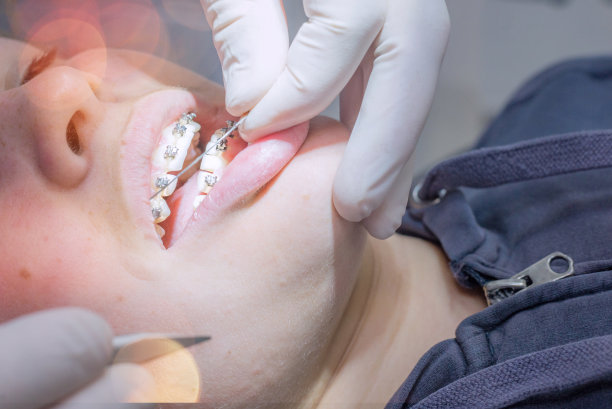Summary: Dental implantation surgery can significantly enhance your quality of life by restoring your smile and functionality. However, it is imperative to remain well-informed and prepared before proceeding with this procedure. This article outlines essential guidelines and precautions that should be considered prior to undergoing dental implantation surgery, focusing on aspects such as choosing the right dentist, understanding potential risks and benefits, the importance of a thorough examination and evaluation, and post-operative care for optimal recovery. By adhering to these guidelines, patients can achieve successful outcomes and minimize complications, enhancing their overall dental experience.
1. Choosing the Right Dental Professional

Selecting a skilled and experienced dental professional is the first step towards successful implantation. Research potential dentists or oral surgeons thoroughly, considering their credentials, experience, and patient reviews. Ensure that they specialize in dental implants and stay updated on the latest techniques and technologies.
Scheduling a consultation is vital. During this visit, discuss your concerns, treatment options, and ask about their previous success rates and patient experiences. This interpersonal connection can create a comfortable atmosphere and instill trust in the process.
Moreover, assessing the facilities of the chosen dental practice is essential. A well-equipped clinic that follows stringent hygiene protocols is crucial for minimizing the risk of infections during and after the surgery.
2. Understanding Risks and Benefits Clearly
Every medical procedure carries potential risks and benefits, and dental implantation is no exception. It is imperative to have a transparent discussion about these aspects with your dental professional. Understanding the risks, such as infection, nerve damage, or implant failure, can help set realistic expectations.
In addition to knowing the risks, it is equally important to weigh them against the potential benefits. Benefits may include improved chewing ability, enhanced aesthetic appearance, and overall improved oral health. A clear understanding can help patients make informed decisions regarding the procedure.
Furthermore, discussing alternatives to dental implants can provide insights into what other options may be suitable for your needs, allowing for a more rounded decision-making process.
3. Importance of Comprehensive Examination
A thorough dental examination is crucial before proceeding with implant surgery. This process often includes X-rays, impressions, and potentially a CT scan to assess the state of your jawbone and the positioning of neighboring teeth.
Your dentist ought to evaluate your overall health condition, including any chronic illnesses or medications that may affect healing. This information is key in planning a successful implant surgery that fits your specific health profile.
Additionally, undergoing necessary treatments, such as periodontal therapy or bone grafting, may be essential if your jawbone is insufficient to support the implant. These preparatory steps can pave the way for a smoother surgical experience and commitment to long-term success.
4. Post-Operative Care and Recovery Tips
Post-operative care is critical to ensure optimal healing and success of dental implants. Your dentist will provide you with specific instructions; following them diligently is essential. This often includes information on pain management, diet, and oral hygiene practices.
Avoiding certain foods and activities immediately post-surgery is crucial. Soft foods are recommended to reduce trauma to the surgical area, and avoiding hard or chewy items can prevent complications. It’s also advisable to refrain from smoking, as it significantly impairs healing.
Lastly, regular follow-up appointments are vital. These visits allow your dentist to monitor healing progress and catch any potential issues early before they develop into larger problems.
Summary:
In conclusion, preparing for dental implant surgery requires careful consideration and adherence to essential guidelines. From choosing the right dental professional, understanding the associated risks and benefits, undergoing thorough examinations, to ensuring proper post-operative care, each step plays a crucial role in achieving optimal outcomes. Patients who are well-informed and proactive in their treatment journey are more likely to experience successful results and improved oral health.
This article is compiled by Vickong Dental and the content is for reference only.
Vickong Dental
Vickong Dental is a large medical group established in Hong Kong in 2008 by professors from well-known medical universities in Guangdong and Hong Kong, as well as medical doctors from key national '985' universities (including Master's supervisors and senior professors). The chain of branches brings together expert dentists with PhDs and Master's degrees from Hong Kong and Mainland China, committed to providing high-quality dental treatment.
"Vickong Dental Practices the University Motto of 'Healing and Serving Society,' with a Stable Operation for Sixteen Years. It Has Been honored with Hong Kong Enterprise Leaders's Choice,' and is a Global Trusted Implant Center for the Nobel Implant System. Recommended by Hong Kong Metro Broadcast and Guangdong Television, it Serves Customers from Over Thirty Countries and Regions, Gaining the Trust and Favor of Citizens from the Guangdong-Hong Kong-Macau Greater Bay Area and Surrounding Cities.

Thousands of customers' unanimous praise
The most recognized and highly recommended dental service by customers in the Guangdong-Hong Kong-Macau Greater Bay Area
We Ensure You Receive Detailed Care and Attention Here
Hong Kong standards, Shenzhen prices, Your Trusted English-speaking dentists

Vickong Dental Medical-Grade Instrument Disinfection Process
Vickong Dental Medical-Grade Instrument Disinfection Process

Vickong Dental Chain: A Warm and Comfortable Environment for Treatment






Appointment Hours

Q&A
Why choose Vickong Dental?
Vickong Dental practices the university motto 「Medicine to Benefit Society」, with each branch bringing together highly qualified dentists with doctoral and master’s degrees from Hong Kong and the Mainland, and has maintained seventeen years of steady operation。Recipient of 「2024 Hong Kong Enterprise Leaders Brand」, 「2025 Hong Kong Enterprise Leaders Brand」, a Nobel Biocare Global Trusted Implant Center, and a brand recommended by Metro Radio Hong Kong and Guangdong TV。
To date, we have served customers from more than thirty countries and regions,earning exceptionally high word-of-mouth recognition and trusted recommendations from residents across the Guangdong-Hong Kong-Macao Greater Bay Area and surrounding cities
We have eight major branches in Zhuhai、Shenzhen,and a consultation and service assurance center in Hong Kong,so you can book a free consultation at any time for any questions,which is very reassuring.
If I do not accept the quotation after the CT scan, will I be charged??
No! As long as the actual treatment has not started, you will not be charged any fees.
Will there be any additional charges during the treatment process?
No, there won’t be any additional charges. Before treatment begins, we will clearly explain the treatment plan and its corresponding fees. Only after the patient agrees and signs the consent form will we proceed with the dental service.
Can I pay in Hong Kong dollars?
Yes. Vickong Dental accepts payment in Hong Kong dollars. The amount will be converted based on the exchange rate of the day, and the applicable rate will be clearly communicated to you in advance.
Can I reschedule my appointment at any time?
Yes. Please contact us via **WeChat** or **WhatsApp** as early as possible, providing your original appointment time and details, along with your preferred new date and time slot for rescheduling.













